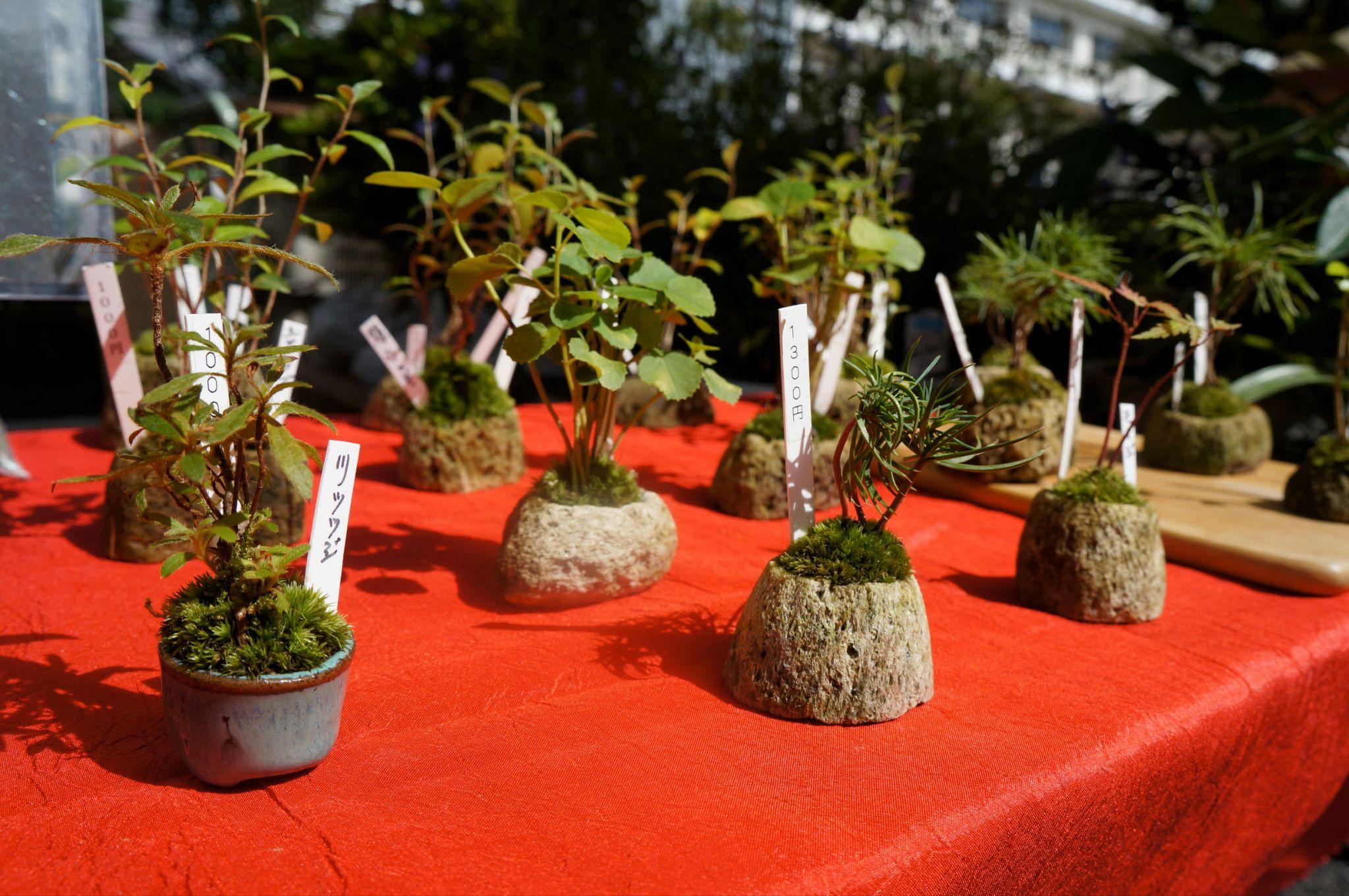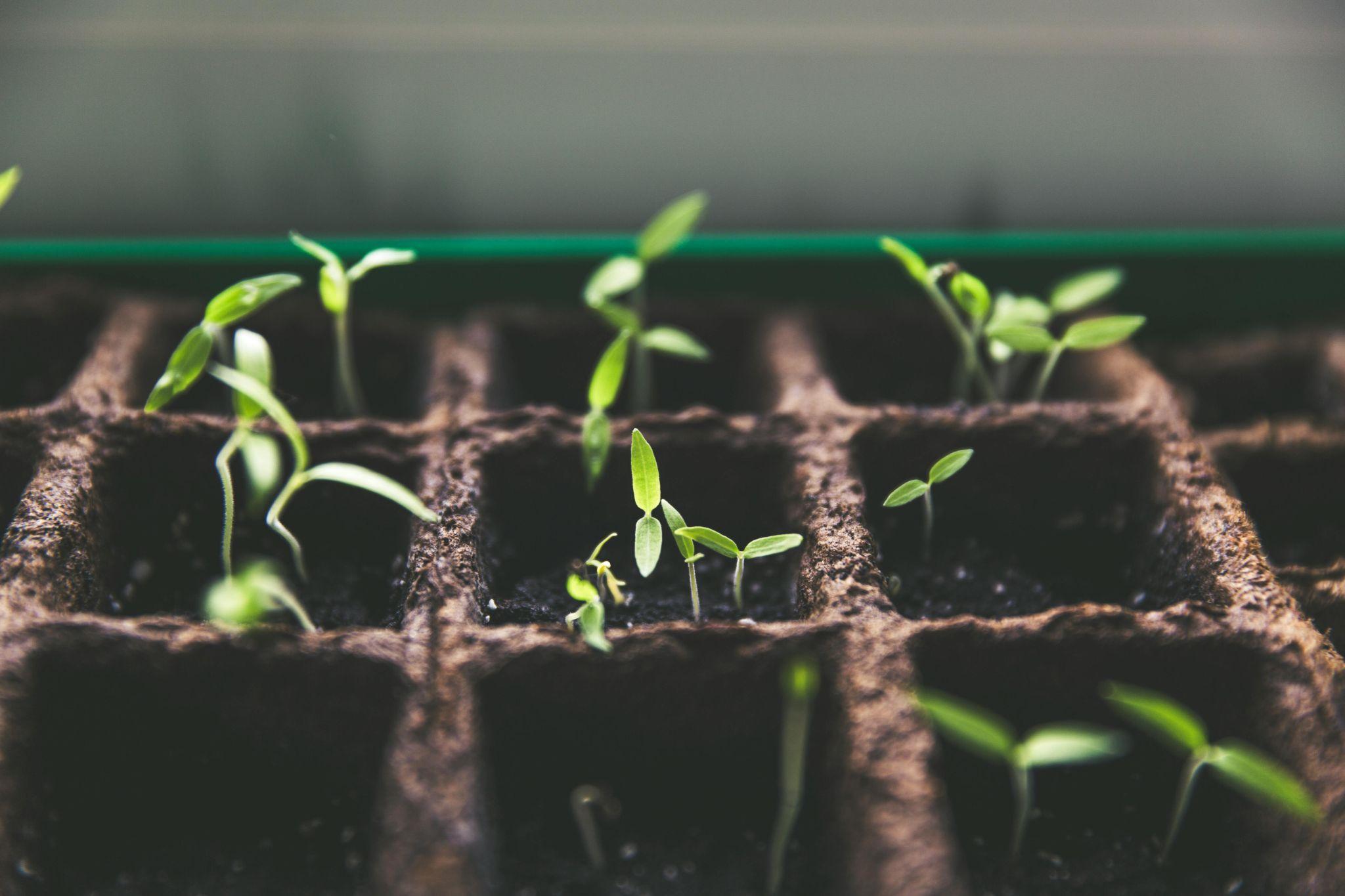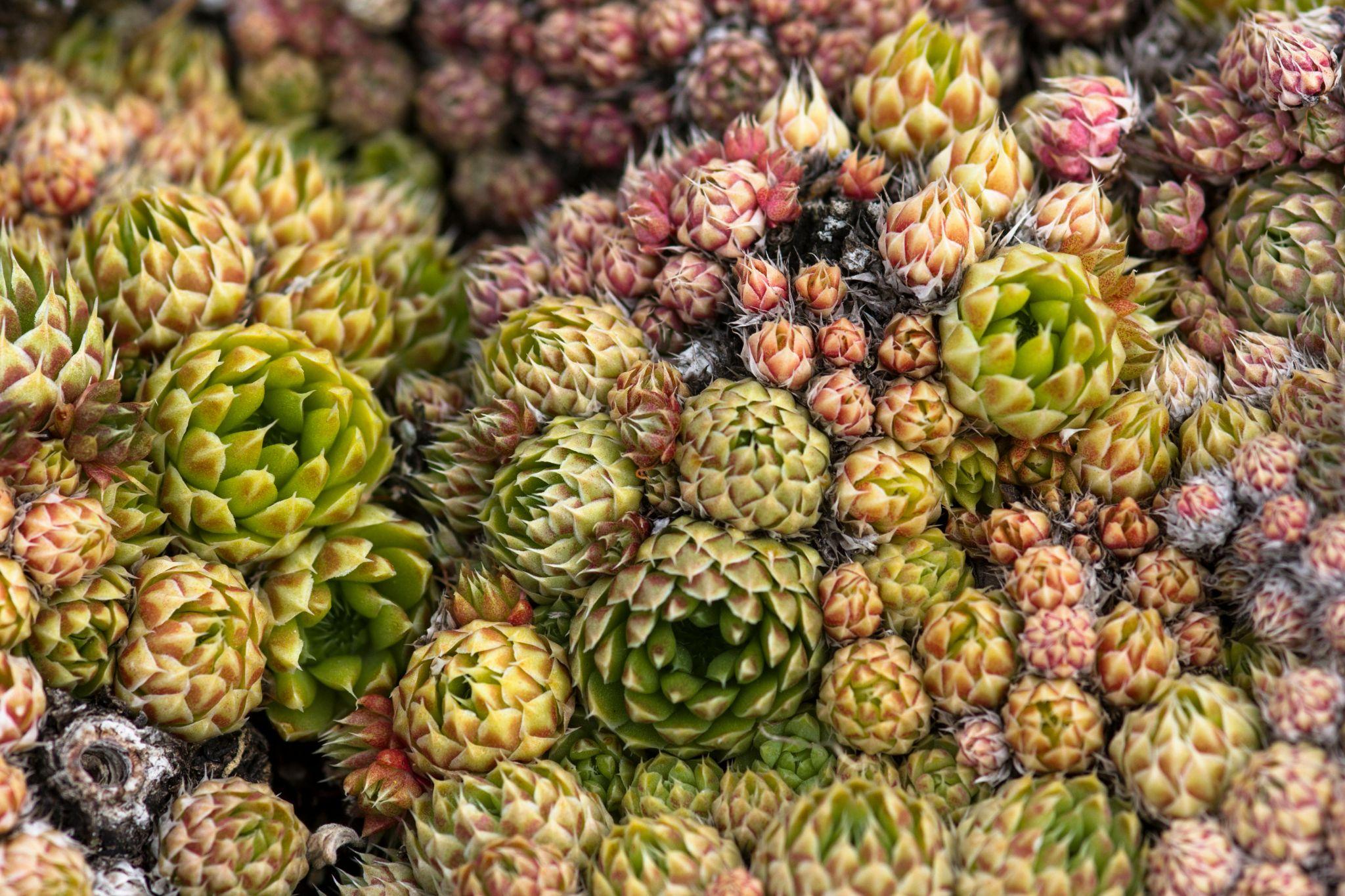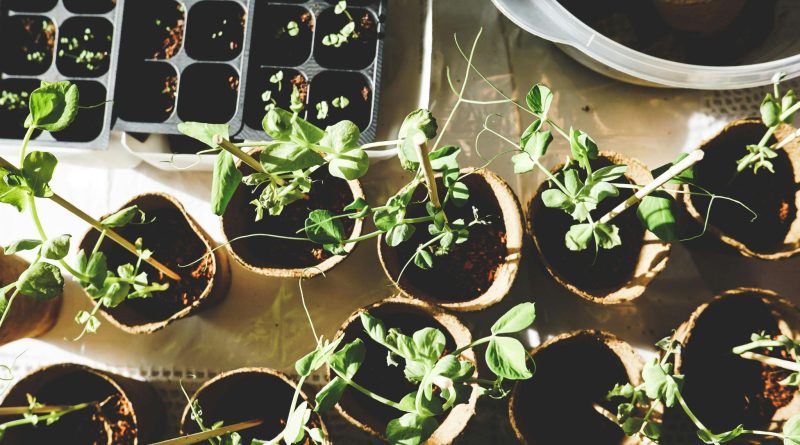The Rise of Miniature Gardening: How Tiny Green Spaces Boost Mental Health
Miniature gardening has emerged as a powerful therapeutic tool, transforming windowsills, desks, and tiny corners into healing sanctuaries that deliver profound mental health benefits. This accessible form of horticulture proves that you don’t need acres of land to cultivate wellness—sometimes the smallest green spaces create the biggest impact on our psychological well-being.
What Is Miniature Gardening & Why It Matters
Miniature gardening encompasses the art of creating tiny ecosystems through fairy gardens, terrariums, container gardens, and tabletop landscapes that fit into urban lifestyles. This growing trend resonates with city dwellers seeking nature connection without space constraints, offering a practical solution for mental wellness in our increasingly digital world. The practice has gained momentum as research continues to validate gardening’s therapeutic potential, making it an attractive option for those seeking natural stress relief.
Defining Miniature vs. Dwarf Plants
Understanding plant categories helps gardeners make informed choices for their tiny spaces. Miniature plants are naturally small varieties that maintain compact growth patterns, while dwarf plants are genetically modified or bred versions of larger species. The key distinctions include:
Growth Rate Comparison:
- Miniature varieties: Slow, steady growth reaching 2-6 inches maximum height
- Dwarf cultivars: Moderate growth, typically 6-12 inches at maturity
- Miniature succulents: Extremely slow growth, often maintaining size for years
- Dwarf herbs: Faster growth requiring regular pruning to maintain compact form
- Miniature trees (bonsai): Controlled growth through pruning and root restriction
Why Size Doesn’t Limit Impact
Small gardens deliver disproportionately large therapeutic benefits through concentrated care and attention. The intimate scale creates deeper connections between gardener and plants, fostering mindfulness and presence that larger gardens might dilute. Key advantages include:
- Ease of maintenance: Manageable watering, pruning, and pest control
- Portability: Gardens can move with lifestyle changes or seasonal needs
- Creativity: Limited space encourages innovative design solutions
- Immediate results: Quick visual feedback enhances satisfaction
- Cost-effectiveness: Lower investment barrier encourages experimentation
- Accessibility: Perfect for physical limitations or mobility challenges
Mental Health Benefits of Miniature Gardens
Compact gardening delivers concentrated doses of nature’s therapeutic effects, providing psychological benefits through hands-on plant care and daily interaction with living systems. Research consistently demonstrates that even small-scale gardening activities trigger positive neurochemical responses, making miniature gardening an effective intervention for stress management and emotional regulation.
Stress Reduction & Mood Improvement
Scientific evidence strongly supports gardening’s ability to lower cortisol levels and reduce anxiety symptoms. A comprehensive meta-analysis published in the Journal of Health Psychology demonstrates significant improvements across multiple mental health metrics through regular gardening engagement.
| Mental Health Metric | Improvement Percentage | Duration of Benefits |
|---|---|---|
| Cortisol Reduction | 32-47% | 4-6 hours post-activity |
| Anxiety Decrease | 25-38% | 2-4 hours sustained |
| Mood Enhancement | 43-52% | 6-8 hours duration |
| Sleep Quality | 28-35% | Cumulative over 2-3 weeks |
| Focus/Concentration | 31-44% | 3-5 hours improvement |
Mindfulness Through Daily Care
Miniature garden maintenance naturally promotes mindfulness through focused attention on immediate tasks and sensory engagement. The repetitive, gentle nature of plant care creates meditative states that interrupt anxiety cycles and promote present-moment awareness. Essential mindful activities include:
- Morning watering rituals: Checking soil moisture and plant needs
- Pruning and deadheading: Removing spent blooms and excess growth
- Growth observation: Noticing daily changes in leaf color and size
- Pest monitoring: Gentle inspection of plant health indicators
- Soil maintenance: Refreshing growing medium and nutrient levels
- Seasonal adjustments: Adapting care routines to changing conditions
Sense of Achievement & Creativity
Designing and nurturing tiny landscapes provides immediate gratification and long-term satisfaction through visible progress and creative expression. The process builds confidence while offering endless opportunities for artistic experimentation. Creative benefits include:
- Instant design feedback: Immediate visual results from arrangement changes
- Seasonal refresh opportunities: Regular chances to redesign and reimagine
- Skill development: Gradual mastery of plant care techniques
- Problem-solving engagement: Addressing growth challenges creatively
- Emotional expression: Using plants and design to reflect inner states
- Pride in creation: Ownership of beautiful, living art pieces
Science Backing the Therapeutic Effects

Clinical research and community studies consistently validate miniature gardening’s positive impact on mental health outcomes. Multiple peer-reviewed studies demonstrate measurable improvements in depression, anxiety, and overall life satisfaction among participants engaged in small-scale gardening activities.
Research Findings on Gardening & Well-Being
Meta-analysis results reveal significant therapeutic outcomes across diverse populations. Studies show 30-40% reduction in depression symptoms and 25-35% improvement in anxiety management among regular gardeners. Life satisfaction scores increase by an average of 42% within 8-12 weeks of consistent gardening practice, with miniature gardening showing particularly strong results due to its accessibility and low barrier to entry.
Nature Exposure in Compact Environments
Even indoor miniature gardens provide crucial nature connection in urban environments where outdoor access is limited. These compact green spaces deliver cognitive and emotional benefits through:
- Biophilic satisfaction: Innate human need for nature connection
- Air quality improvement: Natural purification through plant photosynthesis
- Circadian rhythm support: Natural light interaction and seasonal awareness
- Stress hormone regulation: Proximity to plants reduces cortisol production
- Cognitive restoration: Mental fatigue relief through natural visual elements
- Emotional grounding: Sense of stability through caring for living things
Getting Started with Miniature Gardening
Beginning your miniature gardening journey requires minimal investment and space while offering maximum therapeutic potential. Start with simple setups that build confidence before expanding to more complex designs. Success depends on matching plant choices to your environment and commitment level.
Choosing Your Container & Plants
Container selection impacts both aesthetics and plant health, while plant choices determine maintenance requirements and long-term success. Essential considerations include:
- Glass terrariums: Ideal for humidity-loving plants and closed ecosystems
- Ceramic pots: Excellent drainage and temperature regulation
- Wooden planters: Natural aesthetic with good breathability
- Plastic containers: Lightweight, affordable, and versatile options
- Recycled materials: Creative, sustainable choices like teacups or jars
Plant Recommendations:
- Succulents: Low-maintenance, drought-tolerant varieties
- Air plants: No soil required, minimal care needs
- Mosses: Excellent for humid environments and ground cover
- Miniature ferns: Delicate texture and shade tolerance
- Small herbs: Basil, thyme, and oregano for dual-purpose gardening
Essentials Kit & Initial Care
Basic tools and supplies ensure successful miniature garden establishment and maintenance. Initial investment remains modest while providing everything needed for therapeutic gardening experiences.
| Item | Purpose | Cost Estimate |
|---|---|---|
| Potting soil mix | Plant nutrition and drainage | $8-12 |
| Small watering can | Precise moisture control | $15-25 |
| Miniature tools | Pruning and maintenance | $20-35 |
| Grow light | Supplemental illumination | $25-45 |
| Decorative elements | Aesthetic enhancement | $10-30 |
| Plant food | Nutrient supplementation | $5-15 |
Best Miniature Garden Ideas for Mental Well-Being

Themed miniature gardens enhance therapeutic benefits by creating immersive environments that engage imagination and promote specific emotional states. Different themes address various mental health needs, from stress relief to creative expression.
Fairy & Zen Mini Gardens
Fairy gardens stimulate creativity and playfulness while providing whimsical escape from daily stressors. These themed spaces incorporate:
- Plant selections: Miniature hostas, baby’s tears, small ferns
- Decorative elements: Tiny houses, figurines, miniature furniture
- Pathways: Small stones, moss, or sand arrangements
- Water features: Shallow dishes or small fountains
Zen gardens promote meditation and mindfulness through minimalist design:
- Plant choices: Bonsai trees, ornamental grasses, succulents
- Hardscape elements: River rocks, sand, bamboo accents
- Symbolic features: Stone arrangements, water elements
- Maintenance ritual: Raking sand patterns for meditation
Kitchen Herb & Succulent Minis
Edible miniature gardens combine therapeutic benefits with practical value, providing fresh herbs while reducing grocery costs. Low-maintenance succulent arrangements offer stress relief without demanding schedules. Recommended combinations include:
- Culinary herbs: Basil, parsley, chives, thyme combinations
- Aromatic plants: Lavender, rosemary, mint for sensory benefits
- Colorful succulents: Echeveria, jade plants, string of pearls
- Seasonal rotations: Annual herbs replaced with perennial varieties
- Companion planting: Complementary growth patterns and care needs
Integrating Micro-Gardens into Daily Life
Miniature gardening seamlessly blends into existing routines, creating natural opportunities for stress relief and mindfulness throughout the day. Strategic placement maximizes therapeutic benefits while fitting into busy schedules.
Desk & Workspace Greenery
Office miniature gardens combat workplace stress while improving focus and productivity. Research shows 15% increase in concentration and 25% reduction in work-related anxiety among employees with desk plants. Placement and care considerations include:
- Lighting assessment: Matching plants to available natural and artificial light
- Watering schedule: Integrating care into morning or lunch routines
- Size limitations: Selecting compact varieties that won’t overwhelm workspace
- Low-maintenance options: Succulents and air plants for busy professionals
- Aesthetic integration: Choosing containers that complement office decor
Bedroom & Rest Zone Mini Gardens
Evening miniature garden care promotes relaxation and improves sleep quality through calming routines and plant-produced oxygen. Bedside plants contribute to better rest through:
- Air purification: Nighttime oxygen production from specific plants
- Routine establishment: Consistent evening care as sleep preparation
- Aromatherapy benefits: Lavender and jasmine for natural relaxation
- Humidity regulation: Plants maintaining optimal bedroom moisture levels
- Stress transition: Shift from day’s challenges to peaceful evening activities
Overcoming Common Challenges

Miniature gardening success depends on recognizing and addressing frequent issues before they become major problems. Understanding common pitfalls helps maintain healthy plants and sustained therapeutic benefits.
Avoiding Overwatering & Mold
Moisture management represents the most common challenge in miniature gardening, particularly in contained environments. Prevention strategies include:
- Soil moisture testing: Using finger or moisture meter before watering
- Drainage improvement: Adding perlite or gravel to potting mix
- Ventilation increase: Ensuring adequate air circulation around plants
- Watering schedule: Establishing consistent timing based on plant needs
- Container selection: Choosing pots with proper drainage holes
- Mold prevention: Removing dead plant material promptly
Light, Pest & Plant Longevity
Common issues have straightforward solutions that maintain garden health and therapeutic value:
- Insufficient light: Supplementing with grow lights or relocating gardens
- Pest management: Using natural deterrents like neem oil or beneficial insects
- Plant rotation: Replacing spent annuals with fresh varieties seasonally
- Nutrient deficiency: Regular feeding with diluted liquid fertilizer
- Temperature stress: Protecting plants from extreme heat or cold
- Root bound conditions: Repotting when plants outgrow containers
Community, Sharing & Therapeutic Gardening
Miniature gardening communities provide social connection and shared learning experiences that amplify individual therapeutic benefits. Group activities reduce isolation while building gardening skills and confidence.
Mini-Garden Workshops & Social Groups
Local and online communities offer support, inspiration, and practical knowledge sharing:
- Community center classes: Beginner-friendly workshops and ongoing groups
- Online forums: Social media groups and specialized gardening platforms
- Plant swap meets: Exchanging varieties and sharing propagation successes
- Garden club chapters: Local horticultural societies with miniature sections
- Therapeutic programs: Hospital, senior center, and wellness facility offerings
Horticultural Therapy in Compact Form
Professional therapists increasingly incorporate miniature gardening into treatment protocols for depression, anxiety, and trauma recovery. Therapeutic applications include:
- Emotional regulation: Using plant care to process difficult feelings
- Cognitive stimulation: Planning and problem-solving through garden design
- Social skill development: Group projects and collaborative maintenance
- Sensory integration: Texture, smell, and visual stimulation through plants
- Achievement building: Incremental success experiences through plant growth
- Mindfulness training: Present-moment awareness through gardening activities
Conclusion
Miniature gardening offers an accessible, scientifically supported pathway to improved mental health through daily interaction with living plants and natural systems. These tiny green spaces deliver outsized therapeutic benefits while fitting seamlessly into modern lifestyles, proving that wellness doesn’t require vast resources—just consistent care and attention to small, beautiful things. Start your own tiny green oasis today and discover how miniature gardening can transform both your space and your mental well-being.




